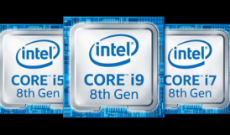>When security researchers disclosed a series of major vulnerabilities impacting Intel processors back in January 2018, it was clear that “Meltdown” and “Spectre” were indeed serious — and wouldn’t be the only exploits of multi-threading chips. Now a new Intel chip vulnerability nicknamed “ZombieLoad” has been revealed to the public, and though it’s already being patched by three major operating system makers, there’s some bad news: full protection could reduce your CPU’s performance by up to 40%.
>Referred to by the more technical name “Microarchitectural Data Sampling,” the ZombieLoad exploit enables an attacker to access privileged data across trust boundaries. In a cloud hosting environment, it could enable one virtual machine to improperly access information from another; researchers also showed that it could be used for app surveillance and password acquisition. The vulnerability broadly impacts operating systems that run on Intel chips, including Android, Chrome, Linux, macOS, and Windows.
>In a just-published support document, Apple suggests that full ZombieLoad mitigation will require Intel chip users to disable Intel’s hyper-threading processing feature — a major selling point of the chipmaker’s CPUs. During testing this month, Apple says that it found “as much as a 40 percent reduction in performance with tests that include multithreaded workloads and public benchmarks,” though actual performance impacts will vary between machines.
>An Intel page discussing the vulnerabilities downplays the performance impacts, suggesting that the performance impact is small: up to 3% without disabling hyper-threading, and up to 8-9% with hyper-threading disabled, though included charts show tinier changes using the latest, high-end Intel Core i9-9900K processors.
>Intel underscores that disabling hyper-threading isn’t really necessary for some users: consequently, unless it’s necessary for a given customer’s workloads and security environment, it says that it’s “not recommending that Intel HT be disabled, and it’s important to understand that doing so does not alone provide protection against MDS.”
http://archive.is/E37mJ
/cyb/ - Cyberpunk Fiction and Fact
Cyberpunk is the idea that technology will condemn us to a future of totalitarian nightmares here you can discuss recent events and how technology has been used to facilitate greater control by the elites, or works of fiction
Archived thread
You know, all I can think about during the waves of Intel exploits is two things:
One, the stock bumps AMD gets every time,
Two, just how many vulnerabilities AMD has that haven't been brought to light.
One, the stock bumps AMD gets every time,
Two, just how many vulnerabilities AMD has that haven't been brought to light.
2 replies | 1 files | 2 UUIDs | Archived

 Ex: Type :littlepip: to add Littlepip
Ex: Type :littlepip: to add Littlepip  Ex: Type :eqg-rarity: to add EqG Rarity
Ex: Type :eqg-rarity: to add EqG Rarity 